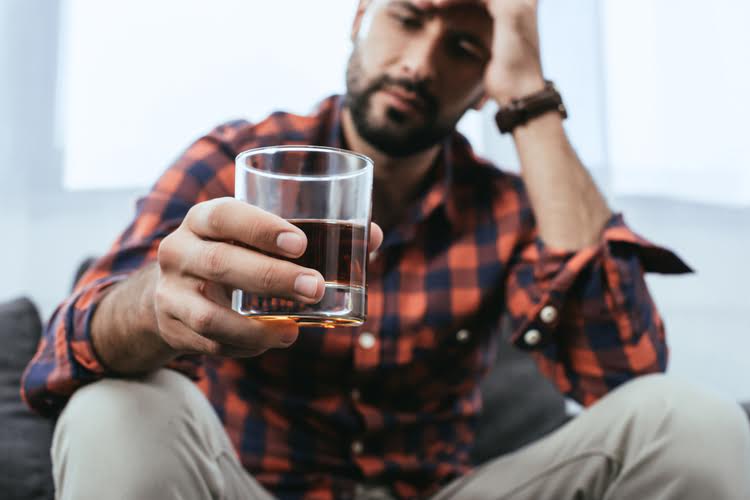Alcohol Misconceptions: Can Alcoholism be Cured?
However, the NHS also recommends looking into outside sources of help such as treatment centres and Alcoholics Anonymous right away, without waiting for a diagnosis. Addressing the psychological aspects of alcohol abuse is crucial for long-term recovery and preventing relapse. Medications play a vital role in managing the symptoms of alcoholic neuropathy. They help alleviate pain, address nutritional deficiencies, and manage other related symptoms.
Renew Health: Your Partner in Alcohol Addiction Recovery
These changes can persist long after you stop drinking, even years or decades later, making relapse an ever-present risk. Understanding alcoholism as a chronic condition needing lifelong management reframes hope realistically rather than promising impossible cures. This approach empowers individuals affected by AUD to seek help confidently knowing they can regain control over their lives through persistence—not magic pills or quick fixes.
What Happens After Treatment?

However, while vitamin supplementation can help, it should not be the sole treatment method; a balanced diet is crucial for effective recovery. According to the national survey on drug use and health, in 2023, about 28.9 million people battled alcohol use disorder in the US. Recovery from alcohol abuse requires a comprehensive and innovative approach that combines multiple treatment modalities to achieve long-term success and sobriety.
Types of Behavioral Treatments
In 2014, French authorities approved studying drug addiction treatment baclofen as a possible treatment for alcoholism. There is some evidence that the drug can help reduce alcohol withdrawal symptoms, thus facilitating better detox and better long-term recovery. Note that this drug is still in the experimental stage for alcohol treatment.
Alcohol use disorder is what doctors call it when you can’t control how much you drink and have trouble with your emotions when you’re not drinking. Some people may think the only way to deal with it is with willpower, as if it’s a problem they have to work through all on their own. Screening tools used by healthcare providers identify risky drinking patterns before full-blown AUD develops.
The road to AUD recovery can be a long process that requires various treatments or therapies. Proper nutrition is crucial for nerve health and overall well-being. A diet rich in essential vitamins and nutrients supports the body’s ability to repair and maintain nerve function.

Residential treatment programs typically include licensed alcohol and drug counselors, social workers, nurses, doctors, and others with expertise and experience in treating alcohol use disorder. For serious alcohol use disorder, you may need a stay at a residential treatment facility. Most residential treatment programs include individual and group therapy, support groups, educational lectures, family involvement, and activity therapy. In addition to alcohol cessation, nutritional support plays a vital role in the treatment of alcoholic neuropathy. A well-balanced diet rich in all B-vitamins is recommended, as these vitamins are essential for nerve health and function.
Does Alcoholic Neuropathy Affect Autonomic Functions, And What Symptoms Might This Include?
Some people are surprised to learn that there are medications on the market approved to treat AUD. The newer types of these medications work by offsetting changes in the brain caused by AUD. 12-step facilitation therapy is an engagement strategy used in counseling sessions to increase an individual’s active involvement in 12-step-based mutual-support groups. That said, mutual help groups today do have a place in some people’s recovery and they can encourage the work of changing and maintaining change. For clinical and research purposes, formal diagnostic criteria for alcoholism also have been developed. To explore additional treatment options, you can view editorially selected providers on our site or visit the SAMHSA Treatment Locator.
Mental Health Issues and Alcohol Use Disorder
A person’s age, genetic predisposition to addiction, health status, and drinking history all have a role to play regarding the severity of the brain damage caused by alcohol. So does the amount of time that has passed since they drank alcohol. If a person tries to suddenly stop drinking, they will begin to feel withdrawal symptoms that are very uncomfortable. Since they want to avoid the symptoms, they keep consuming alcohol. Also sometimes known as alcohol-related liver disease, this condition ranges in severity, but liver damage may be possibly reversed in its earlier stages only. This chronic nature of addiction means that it involves continuous efforts to maintain sobriety, which is why we often talk of a recovery “journey” rather than a one-stop cure or solution.
- Additionally, lifestyle changes can be important for staying sober.
- They work with recovering alcoholics and their families simultaneously.
- Our vision for the Step One Recovery Group was to create an innovative paradise where you can heal, whilst being nurtured, held and cared for.
- A study conducted by the National Institute on Alcohol Abuse and Alcoholism states that an eight-year follow-up showed that 49% of individuals who attended a 12-step program remained abstinent.
- Although an individual struggling with this addiction may eventually quit drinking altogether, brain functioning remains irreversibly altered.
Contact us today to schedule an initial assessment or to learn more about our services. Whether you are seeking intensive outpatient care or simply need guidance on your mental health journey, we are here to help. Alcoholism can have serious physical and mental health consequences, including liver disease, pancreatitis, heart disease, depression, anxiety, and suicide. It can also lead to social problems, such as divorce, unemployment, and legal trouble. Couples and family counseling incorporates spouses and other family members in the treatment process and can play an important role in repairing and improving family relationships.

These approaches aim to alleviate symptoms and prevent further nerve damage. Diagnosis is a crucial step in understanding if someone is experiencing alcoholic neuropathy. It typically involves a series of physical examinations, tests, and diagnostic procedures that can help identify the extent of nerve damage and its underlying causes. Alcoholic neuropathy is a condition caused by consuming large amounts of alcohol over an extended period. The toxic effects of alcohol can damage peripheral nerves that are responsible for movement and sensation. It is important to understand that in moderate cases, alcohol-related neuropathy has the potential to heal if alcohol consumption is stopped and a proper treatment plan is followed.
Medication
At first, a person will can alcoholism be cured be able to choose whether they drink alcohol. Also, you might consider seeing a doctor if you have a history of alcohol misuse or are currently having trouble with alcohol use. They can monitor your liver health and also provide you with resources that can help you quit drinking. Continuing care and support after the initial treatment phase are crucial for long-term recovery. That is why Primrose Lodge offers all our clients free weekly group therapies for the first year after they leave alcohol rehab.
